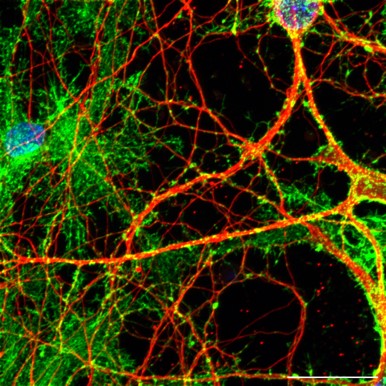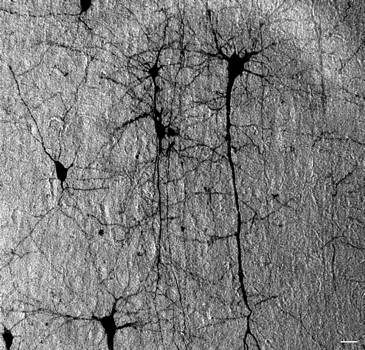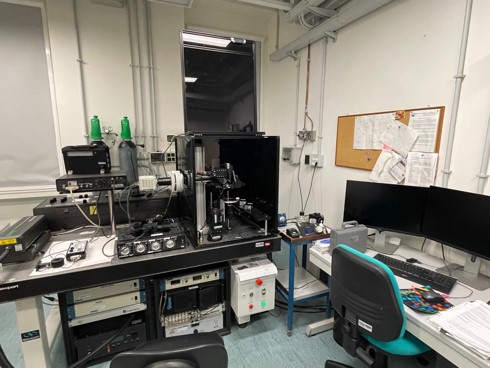Novel interfaces to sense and stimulate neuronal circuits
HOST INSTITUTION
SISSA – International School for Advanced Studies – Neuroscience AREA – Trieste (Italy)
PhD PROJECT DESCRIPTION
Major aim: Development of organotypic slice cultures to test nanomaterial-based sensor and nanostructured interfaces integration to neural circuit function. We will test: 1. Bio-tolerability in organ slices, impact on development, cell differentiation and tissue reactivity. 2. Challenging the efficacy of magnetic sensors and 3. Monitoring microcircuit activities by combining magnetic sensor recording to live imaging and electrophysiology, with or without stimulation. 4. Integration of newly developed minimal-invasive neural stimulation interfaces. 5. Develop a bench-top system to sense and transfer signalling restoring neural communication. The Neural Physiology and technology lab at SISSA offers several areas of lab trainings: In vitro culture management, in vivo anxiety models in rats and somatosensory assessment in behaving zebrafish larvae or during aging; Electrophysiology, live imaging, gene delivery vectors and new genetically encoded optogenetic and chemogenetic probes for mapping, imaging and manipulation neuronal activity. Enrolment in the Doctoral degree in Neurobiology at SISSA, that focus on a major Neuroscience challenge: to explain the mechanisms that account for behaviour and for cognitive higher functions in terms of sensory signals, integration and motor output. The SISSA Neurobiology PhD course faces this challenge with an interdisciplinary approach, combining different research lines and closely working with physicists, mathematicians and biologists. Specific technical training is offered with hands on teaching, while the aim of the Lectures of the PhD program in Neurobiology is to provide students with a common framework starting from different backgrounds. Lectures will take place at the beginning of the SISSA PhD organized in three main scientific modules complemented by a module dedicated to specific experimental methodologies and safety procedures. All the lectures will be in English and will be held by an expert in the field.
Module 1 will be devoted to fundamental aspects of Neurophysiology and Neurobiology: we will review basic notions about neurons, synapses and sensory systems. We will also cover properties of neuronal networks underlying perception in the cortex and locomotion in the spinal cord.
Module 2 will be dedicated to emerging tools and experimental methodologies from Nanotechnology, which can be used to investigate molecular properties of neurons, synapses and sensory cells. Properties of the interactions between neurons and new materials, such carbon nanotubes and grapheme, will be covered as well as basic properties of Atomic Force Microscopy and advanced Photonics.
Module 3 will discuss basic tools of Molecular Biology, from site-directed mutagenesis, protein analysis and proteomics. This module will be complemented by practical courses and lectures (Module 4) on the use of conventional microscopes and basic techniques of himmunohistochemistry and cell cultures.
Moreover, there will be specific courses on selected topics such as Statistical Tools for Neuroscience and Introduction to Neuroanatomy, held by distinguished expert in the field. Students with specific scientific interests, not covered by the planned series of Lectures, will be encouraged to participate to International Winter or Summer Schools devoted to these specific topics.
Planned secondment(s): 1. MTTL https://mttlab.eu/index.php/about/ , Cristina Degrassi, 3 months for biotoxicity tests and preclinical in-vitro biomedical inflammation studies. 2. UAM, Marta P. Pereira https://www.cbm.uam.es/index.php/scientific-programs/physiological-and-pathological-processes/molecular-neuropathology/biology-of-human-stem-cells-in-translational-neuroscience/ , 4 months for testing of the interfaces in brain organoids. Additional secondments can be proposed during the PhD.
The successful candidate will join a dynamic, multidisciplinary research team focused on the application of new technologies and smart nanomaterials to address fundamental neuroscience, with expertise ranging from electrophysiology, live imaging and microscopy. He/she will also participate in team activities, including scientific meetings, progress reports, and interaction with SISSA for outreach activities.



RESEARCH SUPERVISOR
Dr. Laura Ballerini – Full professor of Physiology
ballerin@sissa.it (please CC cellot@sissa.it)
Research Group website: https://www.sissa.it/research/neuroscience/neurobiology/faculty
Other websites: https://www.sissa.it/ https://www.sissa.it/research/neuroscience/neurobiology/course
RESEARCH GROUP DESCRIPTION
Neural Physiology and technology lab – Research model systems: in vitro acute (brain slices) and cultured neuronal networks (dissociated cultures; 3D systems on scaffolds; 3D organotypic co-cultures) and in vivo models (PTSD model in adult rats; zebrafish) merging molecular, cellular and integrative methods (live imaging, electrophysiology and microscopy) to investigate the nervous system mechanisms and functions.
Laura Ballerini research focuses on the interactions between neurons and nanomaterials or bioactive-interfaces. Her scientific strategy is the convergence between biophysics, nanotechnology, chemistry and neurophysiology, potentially leading to a new generation of nanomedicine applications in neurology. More details on recent publications here: Scopus Author ID: 7005287581
Dr Giada Cellot, senior researcher supervising single cell and extracellular electrophysiology, expert in synaptic recordings addressing synaptic modulation, learning and plasticity
Dr Anabela Palandri, senior post doc, team core member in charge of myelin analysis and glial cell staining and myelinating cell live imaging
Dr Maria Pacchetti, senior post doc, team core member developing nanotechnology-based tools and ultra-microscopy
Dr Mario Fontanini, post doc, team core member involved in nanoscale interfacing and light stimulation of neurons by nanophotodiodes
Dr Riccardo Redivo, Lab Manager, team core member in charge of laboratory and project management and reporting
APPLICANT’S REQUIREMENTS
Candidates should hold a M.Sc (or equivalent degree) in Neuroscience, Biotechnology, Biology, Physiology or similar and have some background and/or expertise in in vitro culture/slice electrophysiology, live imaging and fluorescence microscopy. Excellent teamwork and English communication skills are required.
Additional favored research experience: in electrophysiology, in microscopy (live imaging, confocal). Ability to work in multidisciplinary and biotechnological research projects, ability to conduct experiments and Reliability.
Duties and responsibilities: To undertake experiments under the instruction and supervision of the Principal Investigator and in harmony with other lab members. To correctly execute experiments in consultation, ensuring that experiments are appropriately recorded, analyzed and documented (electronically and by a lab book).
ADDITIONAL PhD APPLICATION AND RECRUITMENT STEPS
No additional recruitment steps are required.
ELIGIBILITY CONDITIONS:
- Mobility requirements: candidates not have resided or carried out their main activity (work, studies, etc.) in Italy for more than 12 months in the 36 months immediately before the recruitment date.
- Research experience: must be doctoral candidates, i.e. not already in possession of a doctoral degree at the date of recruitment.
- Candidates must enrol in a doctoral programme in the relevant EU Member State/Associated Country.